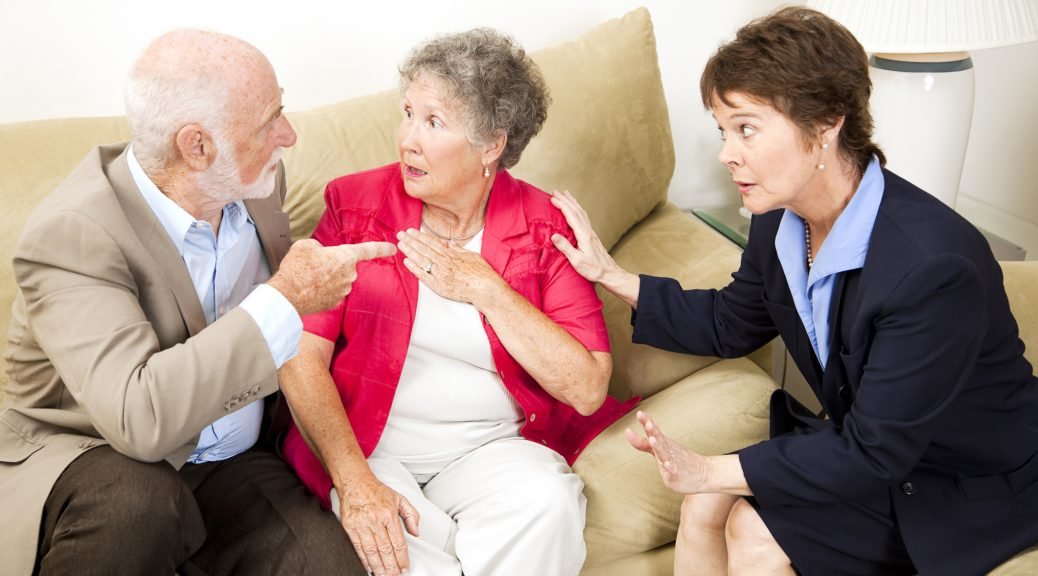Psychosocial treatments and psychotherapy for bipolar disorder: An overview
Psychosocial treatments are continuing to take a more prominent role in assisting in the mood stability of individuals with bipolar disorder. As an adjunct to pharmacotherapy (medication management of symptoms), family focused treatment strategies and cognitive behavioral therapy have been used to assist in successfully reducing relapse and intervening directly for bipolar depression and hypomanic episodes.
Psychosocial treatments for bipolar disorder are beginning to be recognized more often than in the past by experts as an adjunctive treatment to pharmacotherapy for the treatment and management of bipolar symptoms. Keck et al. (2004) recently found that experts are more consistently recommending psychotherapy and psychosocial interventions for the stages of bipolar disorder when patients are most receptive to interventions, such as when they are in an acute stage or in the maintenance phases of depressive and hypomanic episodes. However, these conclusions were not found when patients were experiencing acute manic or psychotic episodes. Psychological treatments and psychotherapy have also been recommended for the treatment of comorbid conditions such as when the patient has additional medical conditions such as eating or substance use disorders, or anxiety. It has been recommended as a first choice option when the use of medications is limited by comorbid medical conditions such as liver disease, renal conditions, obesity, pregnancy or heart disease.
Bipolar Disorder Psychosocial Treatments:
Some psychosocial treatments and psychotherapeutic interventions have demonstrated effectiveness for relapse prevention and in the earlier stages when the initial symptoms of bipolar disorder begin to occur. Cognitive behavioral therapy designed to treat existing symptoms and prevent relapse, individual cognitive behavioral therapy to treat bipolar depression, psychoeducational interventions and family-oriented interventions to assist in medication compliance and facilitating social support systems have demonstrated some effectiveness. Specific interpersonal related therapy along with interventions to assist with balancing sleep, awake, routine and activity cycles have been studied, although their effectiveness has not been proven at the present time.
The most effective psychosocial treatments seem to focus on some of the same basic principles: (1) Psychoeducation that helps patients to understand the role of medication compliance, and a basic understanding of their disorder as well as factors that aggravate the disorder such as issues related to sleep, regulating lifestyle and stress management; (2) communication and problem-solving training to reduce individual and family stress; (3) improving an understanding of early detection and intervention strategies such as increasing psychotherapy sessions, review of medications and increased family support and assistance. These interventions may be combined with additional cognitive behavioral strategies such as cognitive-restructuring, thought and activity monitoring, and other treatment interventions within an individual, family or group setting.
Cognitive Behavioral Therapy for Bipolar Disorder:
Typical cognitive behavioral therapy may include interventions for depression, balancing sleep and wake cycles and routine management, as well as monitoring of moods with a focus on the early detection of symptoms and initiating intervention. Lam and associates (2003) studied cognitive behavioral treatments and found some strong protective effects associated with the treatments, including a 43.8% relapse rate for individuals participating in cognitive behavioral therapy compared with a 75% rate for individuals from a control group who did not. Additional benefits were also identified in that the actual time spent in manic or depressive episodes was reduced significantly, and fewer days were spent hospitalized for the disorder.
Miklowitz et.al. (2003) found similar success with family interventions. In studies on family focused treatments that focus on psychoeducation for both bipolar patients and their families, along with assisting with communication and problem-solving have been found to be similarly effective. Interventions also included role-playing interventions and rehearsals both within and between sessions. Psychoeducational interventions included discussing risk and protective factors for mood episodes, along with rehearsal and relapse prevention efforts in the early stages of the bipolar episodes. The study by Miklowitz et al. (2003) found that in 21 sessions over a period of nine months of family focused treatments combined with medications, reduced both depression and manic symptoms as well as offered protection against relapse of bipolar episodes. These were compared to alternative interventions which focused on medication treatment along with two sessions of home-based family psychoeducation and crisis intervention over a period of nine months.
In another trial study by Rea et al. (2003), it was found that patients undergoing family focused therapy along with medication management had significantly longer delays in hospitalization and less relapse when compared to individuals undergoing only individual therapy consisting of medication compliance, psychoeducation, family support and problem-solving. Following the delivery of the active psychosocial treatments for a year, the rates of rehospitalization in the family focused therapy experience were only 12% as compared to 60% among the individuals receiving strictly individual therapy.
Summary of Psychosocial and Psychotherapeutic Interventions for Bipolar Disorder:
As reviewed in this article, several psychotherapeutic and psychosocial interventions have been found to be effective as an adjunct to the use of medications for the maintenance and early intervention to reduce the symptoms of bipolar disorder. The common principles involved in utilization of psychosocial treatments and psychotherapy for bipolar disorder focuses on the core belief that effective treatment needs to be a comprehensive, psychoeducational, cognitive behavioral, skill-based program, incorporating the family and social system which is oriented toward the long-term management of this chronic mental health condition.
References:
Keck, D. A., Perlis, R.H., Otto, M.W., Carpenter, D., Docherty, J.P. & Ross, R. (2004). Expert Consensus Guideline Series: Treatment of bipolar disorder. A Postgraduate Medicine Special Report: December, 1-108.
Lam, D. H., Watkins, E. R., Hayward, P., Bright, J., Wright, K., Kerr, et all. (2003). A randomized controlled study of cognitive therapy for relapse prevention for bipolar affective disorder: Outcome of the first year. Archives of General Psychiatry, 60, 145-152.
Miklowitz, D. J., George, E. L., Richards, J. A., Simoneau, T. L., & Sudduth, R. L. et.al. (2003). A randomized study of family-focused psychoeducation and pharmacotherapy in the outpatient management of bipolar disorder. Archives of General Psychiatry, 60, 904-912.
Rea, M. M., Thompson, M. C., Miklowitz, D. J., Goldstein, M. J., Hwang, S., & Mintz, J. (2003). Family-focused treatment versus individual treatment for bipolar disorder: Results of a randomized clinical trial, Journal of Consulting and Clinical Psychology, 71, 482-492.
By Paul Susic Ph.D. Licensed Psychologist


